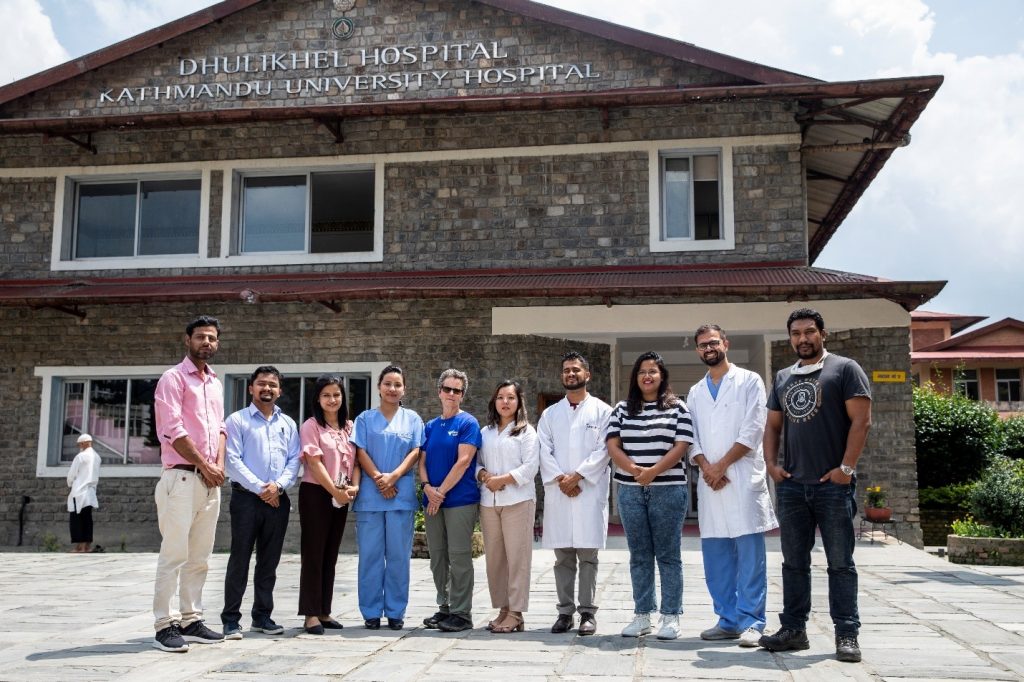2024-2025 Fulbright Specialist Program Application Open Deadline: September 15, 2024 The Nepal Fulbright Commission announces applications open for the 2024-2025 Fulbright Specialist Program to support Nepali institutions through grants to…

The Hubert H. Humphrey Fellowship Program was established in 1978 as a Fulbright exchange that advances US foreign policy goals through the exchange of mid-career professionals representing approximately 140 eligible countries from all world regions. In support of US foreign policy goals, Mission goals, and ECA’s Functional Bureau strategy, the program cultivates a network of current and future political, civil society, and educational leaders to address global challenges in fields such as democratic institution building, economic development, public health, education, and journalism and media literacy.
A recent evaluation found that 61 percent of Humphrey alumni return home and work in government in some capacity. Others are leaders in their fields driving policy, introducing new best practices and implementing innovative management methods into their organizations. Additionally, 46 percent of alumni have developed national policies, created national programs, served as national trainers, and advised government officials on legislation in their home countries.
During their fellowship, Humphrey Fellows participate in non-degree study at approximately 13 host campuses across the United States and complete at least six weeks of a professional affiliation at a US-based governmental, non-governmental, private sector or international organization. Through their academic and professional experiences, they gain knowledge about the United States, deepen their professional expertise and experience in their field, expand their network to include US and international counterparts, and, as alumni, serve as key interlocutors for posts around the world.
Current fields of study and affiliation under the Humphrey Program include:
a. Agricultural and Rural Development
b. Economic Development/Finance and Banking
c. Natural Resources, Environmental and Climate Policy
d. Urban and Regional Planning
a. Communications and Journalism
b. Law and Human Rights
c. International Religious Freedom
d. Public Policy Analysis and Public Administration
e. Trafficking in Persons Policy and Prevention
f. Technology Policy and Management
g. Human Resource Management
a. Educational Administration, Planning and Policy
b. Higher Education Administration
c. Teaching of English as a Foreign Language
a. Public Health Policy and Management
b. HIV/AIDS Policy and Prevention
c. Substance Abuse Education, Prevention, and Treatment (see note below)
d. Contagious and Infectious Diseases
e. Note on Substance Abuse Education, Prevention, and Treatment field: ECA cooperates with the National Institute on Drug Abuse which provides some co-funding to work with Humphrey Fellows in the field of substance abuse. Candidates must have either a research background in the field or demonstrated ability to learn the results and policy implications of current research. The candidates should be recruited and ranked together with candidates in other fields and must complete the supplementary field-specific page of the Humphrey application for this topic area.
The program competition opens in May.
No, and there is a special 3-month supplemental program in the US before the regular grants for those who need to work on their English. Please read about the “long term English” program.
Candidates cannot choose their placement. The placements are managed by the Humphrey Program Office in the US upon the candidates’ selection in the US
No. TOEFL scores are not required at the time of application. If you pass the initial screening then you are required to take the TOEFL test, which is offered free of cost by the Commission.